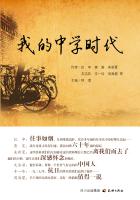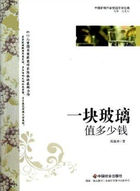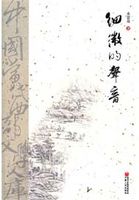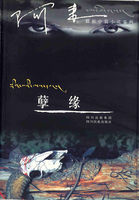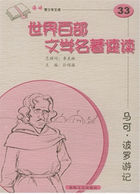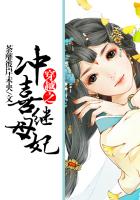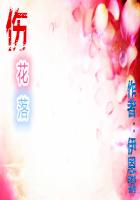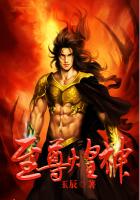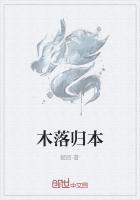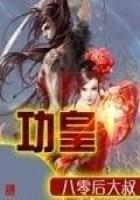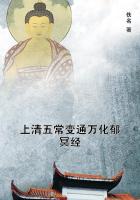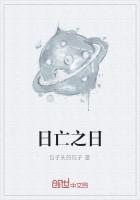Talking about the relationship between the writer and the reader, Vonnegut believes that“literature is the only art that requires our audience to be performers”。 He tells the interviewer:
Literature is idiosyncratic arrangements in horizontal lines of only twenty-six phonetic symbols, ten arabic numbers[sic],and about eight punctuation marks。 And yet there are people like you who can look at a printed page and put on shows in your head。
[……]
Our readers have to be performers, so they themselves have done work in order to decode these messages on the page。 Because they are involved, they become our partners。They've brought themselves to it。That's the extra dimension about which we know nothing。But it's delightful to know that they can bring themselves to it。They have to, or they can't read。(Like Shaking Hands with God 17,45)
According to Vonnegut, we as readers have to participate in the act of writing and perform the tasks of decoding the messages on the printed page and putting on shows in our imagination。 Reading Vonnegut's novels is exactly such an experience。Simple as most of his works appear to be, they are nonetheless not easy to comprehend。Great efforts are demanded to disclose the real meaning behind the hilarious, absurd, and always jumbled universe that Vonnegut characteristically creates。Oftentimes, ifnot attentive enough, we may miss slippery motifs and overlook serious messages。Such is the case with the animal images。
Few animals fgure prominently in Vonnegut's fction。 Most of them are marginal and seem insignificant, like appendixes to a voluminous masterpiece。However, they never fail to appear。Metaphorically or literally, as means of expression or as roles in the story, Vonnegut's animals constantly make appearances on the pages and claim our attention。Claude Levi-Strauss writes in his monumental anthropological study of Totemism that animals are“good to think”(89)。Vonnegut, himself an anthropology MA student, may have also realized the importance of animals in the human perception and conceptualization of the world。Speaking through animals is a remarkable feature of his art。However, unlike Levi-Strauss and many others, Vonnegut does not use animals only as symbols for the study of humanity, but also consciously treats animals as living entities of their own interests。He is never indifferent to the experiences of the animals in the real world and makes conscious efforts to incorporate them into his predominant humanistic themes。
In the essay“The Animal That Therefore I Am”,Derrida reiterates that the cat that encounters and gazes him in his nudity is a“real cat”。“It isn't the fgure of a cat”that“enter[s]the bedroom as an allegory for all the cats on the earth, the felines that traverse our myths and religions, literature and fables”(6)。 It is this singularity and“realness”of the cat that evoke one of the most signifcant philosophical meditations about animals in the Western philosophy。Similarly, most of the animals in Vonnegut's fction are“real”。They are living, breathing, and even personalized creatures, although their personality, like that of Vonnegut's human characters, is usually two-dimensional and caricaturized, such as Dwayne's tailless dog that has to be misunderstood and beaten by his own kind and the dog in Jailbird who engages himself in a constant, desperate combat with passing automobiles。Most of the animals that frequent the Vonnegut world are domestic animals, such as dogs, horses, cattle, and the familiar birds。Very few of them are wild, ferocious, aggressive predators。Even if they are wild, they belong to the herbivorous, docile species, and most of them share a common feature of being awkward and preposterous-looking, such as the giraffe, the famingo, the rhinoceros, and the aardvark。Vonnegut's animals never pose danger to the humans。
Instead, they invariably become victims of human cruelty。At best, they are stereotyped and made fun of in the human imagination;at worst, they are killed and become dishes on the dinner table or crushed by the forces of human ingenuity in the form of science and technology。Even in the case of companion animals, there is a paradox of domination and affection:the apparent intimacy and dependence humans show to their pets is often based on mastery and dominion, as in the case of Selena’s neutered seeing-eye dog and Rumfoord’s Mastiff。In all cases, Vonnegut’s sympathy for the living animals is obvious, constant, and sincere, displaying his enlarged compassion as a humanitarian writer and his conscious involvement in the contemporary debates over the animal question。In the portrayal of animal sufferings, he challenges the long-standing western tradition that treats animals as“dumb beasts”that are inferior and cannot feel, thus aligns himself with the camp of intellectuals headed by Bentham, the 17th-century philosopher who proposed changing the question regarding animals from“Can they think?”into“Can they suffer?”
Commenting on“The Animal That Therefore I Am”,Marie-Louise Mallet observes that Derrida has brought to our attention the“fragility”and“porosity”of the supposed frontiers of the“proper”upon which we have presumed for so long to found the traditional opposition between“man”ad“animal”。“In so doing,”she says,“however much it may disturb all those assurances concerning the‘animality'of the animal‘in general',it is no less disturbing for any assurance concerning the‘humanity'of the human”(Derrida xi)。“Animals are my concern。 Whether in the form ofa figure or not,”Derrida proclaims(35)。In the lecture/essay, he spends much time repudiating the“unprecedented proportions of this subjection of the animal”(Derrida 25),with unequivocal reference to the“industrial, mechanical, chemical, hormonal, and genetic violence to which man has been submitting animal life for the past two centuries”(Derrida 26)。And yet the discussion invariably springs from and leads to the examination of humanity and the Western philosophical tradition that has been anthropocentrically prejudiced against animals and maltreated them,“from Aristotle to Descartes, from Descartes, especially, to Heidegger, Levinas, and Lacan”(Derrida 27)。
The titles of the three conferences he suggested well summarize his thinking:“The End of Man”,“The Crossing of Borders”,and“The Autobiographical Animal”(Derrida 2,29)。In a similar manner, in Vonnegut's representation of the sufferings of animals, scathing critique is always directed at humanity。Whether as farm animals raised as meat machines, or as pets to accompany the lonely human, or as useful tools in wars or scientifc experiments, it is always in the encounter with the humans that animals lose their autonomy and become abused, pathetic figures。Humanity is Vonnegut's insistent target of criticism and center of concern。By describing the entanglement and encounter of humans and animals, however flimsy the deion is, Vonnegut forces us to reconsider“who we are”,“who they are,”and“how we all are intertwined”,to borrow the words of Kari Weil(xvii)。Like Swift who uses animals as a mirror to refect the human ugliness and deformity, Vonnegut depicts the miseries of animals to refect human cruelty。What is different is that, instead of imaginary animals, Vonnegut writes about real animals and shows deep concern for their conditions as well as that of humans。
In his treatment of animal welfare, Vonnegut demonstrates humanistic inclinations, too。 Unlike the animal rights activists who try to elevate animals'status in the human society so as to eliminate species discrimination, Vonnegut degrades humans for the same purpose, bydebunking the follies of humanity in its pomposity, arrogance, stupidity, and cruelty。An analogous condition of helplessness and victimization in face of oppression and violence is also illuminated between animals and humans。Despite all the alleged exceptional attributes that safeguard its superiority, reason and speech in particular, humanity is shown in Vonnegut's fiction to be no better than the beast, either in terms of savagery that is generally ascribed to animality or in terms of free will that is believed to be mankind's privilege。The boundary of species, the“insuperable line”,is thus seriously blurred, its“fragility”and“porosity”become apparent。Constantly, Vonnegut describes human condition against the measurement of animals, making theriomorphic comparisons of humans to animals, instead of the traditional anthropomorphism that humanizes animals。By speaking of humanity in terms of animality, Vonnegut demythologizes the Enlightenment concept of human supremacy and brings man down from his hallowed throne as the pinnacle of the world。Indeed,“the End of Man”and“the Crossing of the Borders”can well be the summary of Vonnegut's philosophy, too。
In spite of his relentless criticism of humanity, however, Vonnegut is not a total pessimist or antihumanist。 Contrarily, as he repeatedly asserts in lectures and essays, humanity is his“religion”and the only“superstition”that he believes in。Although he is fercely angered by the wrongs and ruins humans have done to other species and the planet Earth, and although he truly believes that“the immune system of Earth is trying to get rid of us”,envisioning in his fctional world various scenarios of apocalypse, he nevertheless refuses to give up all hope for humanity。He made this clear when he spoke to the Bennington graduates:“Military science is probably right about the contemptibility of man in the vastness of the universe。Still—I deny that contemptibility, and I beg you to deny it, through the creation or appreciation of art”(WFG 165)。Indeed, there is an insistent urge in Vonnegut's novels to make sense out of the chaotic universe anda desire to search for solutions to the human predicament。“The Church of God the Utterly Indifferent”in The Sirens of Titan, Bokononism in Cat's Cradle, and“The Church of Jesus the Christ the Kidnapped”in Slapstick are all examples of such efforts, although they all end up horribly misguided。
In the portrayal of the younger generation, we can see the glimmering hope for the human future。Chrono in Sirens of Titan, Melody in Slapstick, Rob Roy in Hocus Pocus, and Akiko in Galapagos are all young characters that demonstrate compassion, kindness, care, perseverance, and gratitude for life。They are responsible for their own life and foster faith in a better future。Even in Slaughterhouse-Five, where the world ends up like the lifeless moon, signs of spring are described in the ruins of Dresden。As Sumner points out,“There are always seeds of hope in destruction, victories amid the larger defeat, birth on the frontiers of death”(185)。
The concept of ecological humanism appropriately captures the mixed sentiments of hate and love for humanity that characterizes Vonnegut's humanism。 On the one hand, it denotes ruthless criticism of the hubris of human supremacy that classic humanism has boosted, denouncing, in particular, the cult of reason and the hegemony of scientism and technocracy that has put humans in separation from and antagonism against nature and other animal species。On the other hand, ecological humanism maintains the appreciation of the grace and dignity humankind has as a species, recommending proper and constructive use of its special capabilities, such as compassion, reflection, self-examination, and moral consideration for others, for the restoration of the harmony between humans and their fellow species。Drawing upon the ideals of classic humanism such as democracy, equality, liberty, and self-realization, eco-humanism proposes the extension of these ideals to the nonhuman sphere, a tendency that is salient in Vonnegut's animal poetics。
For both Vonnegut and eco-humanists, speciesism is always in collaboration with sexism, racism, classism, and all other forms of discrimination based on difference。Therefore, the eradication of speciesism is critical for the thorough liberation of human groups marginalized in society。Moreover, in both the Vonnegutian cosmology and ecological humanism, classic humanism is reexamined against the context of the deteriorating ecological crisis。It becomes clear to both that the fundamental cause of the ecological destruction consists in the anthropocentricism that is rooted in classic humanism。A redefnition of the human role in the universe and the ecological community is attempted in both, remapping the human relationship with nature and the nonhuman species from one of mastery and domination into one of equality and fellowship, from the“paragon of animals”into humble members of the biotic community。The science fiction narrative mode helps Vonnegut achieve this goal。By having his characters travel to extraterrestrial planets and meet with alien visitors, Vonnegut creates an interplanetary perspective and useful distance to refect humanity, to look at humans as“Earthlings”and“planetary citizens”,and thus reveals their commonality and defates any vain assumption of superiority。
Therefore, ecological humanism gives meaning and system to Vonnegut's apparently discursive treatment of animals and the ecological awareness permeating in his writing, as well as the science fiction devices that Vonnegut fnds so hard to give away although it caused him so much anxiety of recognition。 Underneath this umbrella concept, they become consistent and integral ingredients contributing to the special flavor of his predominant humanistic themes。It also helps further our understanding of Vonnegut's status as an angry but stubborn advocate of humanism。He believes in the Enlightenment notion of human dignity and perfectibility, but he also sees the stupidity and danger if it goes unbridled。Radical reform is in high order and he proposes a humbled self-image。To redeem our sins in the destruction of the environment and restore our fellowship with other animals, Vonnegut maintains, we need frst to“de-humanize”ourselves, say good-bye to the big brain that has poisoned our understanding of ourselves and our relation to others, and return to where we are from, namely, the animal kingdom, metaphorically and/or literally。
Vonnegut is not a conscious animal rights writer。 The position of animals in his fction is mostly marginal and peripheral。Although most of them are real, living beings, their roles are primarily in the service of his humanistic themes, as refections of the human condition。The concern for their own interest, constant and sincere as it is, is subsidiary in comparison to the overarching concerns of humanity。Likewise, Vonnegut's ecological awareness is mainly expressed in his essays。Breakfast of Champions is the only fctional work where serious and concentrated discussion of ecological issues is incorporated。In most other works, it is interspersed and scattered, lacking the momentum to claim sustained attention。Therefore, although the impetus for a reexamination of the human-animal relationship in relation to humanism is sure and persistent, Vonnegut's ecological humanism is still on a burgeoning stage。Therefore, the title of this book is“toward ecological humanism”。
Both ecological humanism and animal studies are emergent felds of interdisciplinary studies, and there is little systematic literary studies done in either perspective。 Meanwhile, animal images in Vonnegut's works have been largely ignored in the Vonnegut scholarship, so that reference for the interpretation of their signifcance in his fction is hard to fnd。These factors in combination, the present research on Vonnegut's ecological humanism from the perspective of animal studies is highly tentative and might be faulty in certain aspects。Further efforts are needed to improve it。However, I do believe that the ubiquity of the animals in Vonnegut's fictional world deserves serious attention and ecological humanism is an appropriate concept to define his study of humanity。Moreover, with the establishment of the ecocritical paradigm in the diverse fields of the Humanities, the animal turn is becoming more and more prominent andanimal studies is claiming more attention。It is highly necessary, too, in view of the prevailing oppression humans daily infict on the other animals and the arrogant disregard for the animal welfare that is still widespread in the contemporary society。To relate to it and learn from its concepts and perspectives may open a refreshing window for literary scholars to a wider and more meaningful world。

